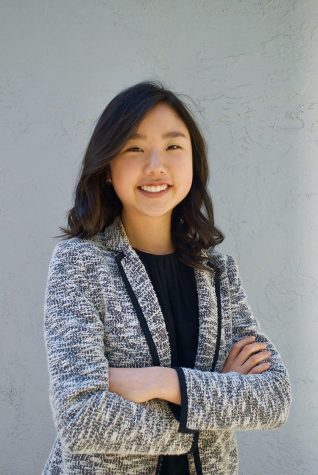Weak Oversight Raises Concerns over Club Legitimacy
February 27, 2018
Of the 86 clubs that currently claim to exist at Campolindo, not one of them has been required to submit proof of any legitimate operations.
Part of the problem is the process in which clubs are created. Without any meaningful oversight, groups are free to proclaim themselves clubs without actually serving any meaningful purpose or actually accomplishing anything. Leadership only requires those who wish to form a club to submit a constitution that outlines their mission statement, a list of members, suggested activities, and a budget. Clubs are also required to have a teacher sign their constitution as a confirmation of their role as adviser.
Once the club is recognized by Leadership, there are no official check-ins to confirm whether these newly formed clubs are following their constitution or meeting at all.
Principal John Walker said that if any issues concerning clubs arise, he speaks with the teacher advisers. However, he requests updates for “the larger clubs, especially the ones that require financial support, facilities, and travel,” more frequently.
Walker said he speaks with about 20 advisers about their clubs throughout the year. That’s roughly 23% of the total number of clubs on record. He checks in with the advisers “To make sure they are aware they are actively supervising whatever the endeavor of the club is…Teachers need to be held accountable for the clubs they are advising.”
Walker admits however, that he does not connect with the majority of clubs.
Librarian Sarah Morgan listed as the adviser for 5 different clubs. While she can confirm that 3 of those organizations are legitimate clubs that offer worth opportunities for students, others, like “[The Investment club and Theatre club], never meet.”
Morgan believes that clubs should be held accountable for accomplishing something over the course of the year. “There should be some kind of evaluation that is stamped and approved at the end of the year because its only approved at the beginning of the year and there is no follow-up…You should definitely prove that you participated somehow,” she said.
The idea students are using clubs that exist in name only to pad their resumes doesn’t sit well with Morgan.. “The 2 clubs that don’t really meet, they do have a constitution that is board adopted, so they’re not really upholding their end of the constitution,” said Morgan.
The Investment Club, said Morgan, are a group of friends that tell her they have meetings but “I think sometimes they’re joking around and they end up playing chess instead.”
Investment Club president Leon Yushin said the group of “around 6” are friends that normally hang-out anyways because they have similar interests. “We meet online… Sometimes we meet at my house, with friends and we review [stocks] for half an hour and we meet twice a week,” he said.
Sometimes, said Yushin, they don’t meet twice a week but only once. Then he added that rarely, they might not meet at all.
This practice of using leisure “hang out” time as justification for club credit is just one problem with the current system. Also an issue is disparity between levels of involvement on the part of the advisers.
Some teachers meet regularly with club presidents to plan events and give up lunch time or after school hours to help supervise, while others simply sign their names and provide a meeting place. “There should be some kind of accountability for [the advisors] too,” said Morgan.
One club, she said, begged her to be their advisor. “You don’t have to do anything, we promise!” they told her.
Yet the idea that the club adviser would not be involved is counter to the expectations Walker has for teachers. “[Teachers] need to be actively involved,” he said.
Morgan believes a club should be meeting at least once a month and should provide proof to Leadership that it is working towards the mission articulated in its constitution. Otherwise, the club should not be recognized.
Yet Webb-Peploe is hesitant to implement a policy that would hold clubs accountable. “If students came to me and felt like there was a real problem with this, then I would not have a problem with organizing a system to meet that need. I think I come from a place where my goal for clubs is to help students belong, so I’m more interested in helping facilitate getting clubs up and running than trying to be punitive to ensure that they have done what they’ve said they’ve done,” she said.
In spite of the questions of legitimacy, Walker said he is proud of the variety of clubs on campus. “Clubs certainly range in terms of purpose. Some are more social in nature, some are community service oriented, some academically oriented. I feel it isn’t appropriate for the administration to have too tight a scrutiny on club’s purpose, except it needs to be appropriate for school and fit within our safety guidelines,” he said.
Both Walker and Webb-Peploe review club constitutions to verify that they meet that standard. They interview club presidents as part of the process, requiring recurring clubs to go through the process again each year.
Webb-Peploe said the main issue is “that sometimes clubs are active one year and then they’re not active the next year… So it’s hard to know from year to year which clubs are gonna take off because it’s really based on what the students want.”
However, Webb-Peploe admitted that, “We have someone do a Lettuce Club every year, we know that that’s inactive…”
That willingness to look the other way is not shared by everyone. “It’s almost embarrassing,” said Morgan of placing clubs like the Lettuce Club in the same category as the Leo Club.
There is also the problem of holding individual club members accountable. In clubs with large membership lists, it is not impossible for some “members” to earn credit without actually being involved with the activities of the club.
Interact Club president senior Ashley Mulakaluri manages an organization with at least 2 meetings a month and joins community volunteer efforts such as Project Empathy. When some of her members don’t turn up at club events, she said she talks to them one-on-one about their membership status.
Mulakaluri said, “We have a sheet they fill out for how many hours and what they did… in the past, we set limits, like 10, but we’ve seen the numbers vary a ton so we don’t want to keep it absolute.” In other words, volunteers register their hours to the club, but there is no minimum hour requirement for members to complete.
One way Mulakaluri said she deters members who show up to meetings but don’t participate in outside club activities is to not bring tempting treats to the meetings.
One of the main reasons why students form clubs in the first place is to enrich their college application, but there seems to be no way for a college to verify what it sees on a student’s application regarding extra curricular involvement.
With increasing competition from out-of-state students and higher tuition costs, as well as Campolindo’s own high academic expectations, it’s not too difficult to imagine that there are students who take advantage of the lack of oversight.
As long as you get credit for it, right?
However, College counselor Joan Batcheller said, “if you’re class president, they know that you are doing something, versus the founder of the Rubix Cube Club. I don’t think being the founder of the Rubix Cube Club is going to get you into UC Davis.”
Webb-Peploe also pointed out that “people aren’t really putting ‘Lettuce Club’ on their application.”
Batcheller claimed that if an admissions officer wanted to verify a certain club listed on an application, they could contact Campolindo. Yet, they would most likely be forwarded to teacher who signed their name onto the constitution, a teacher who may not know much more about the club than the name of its president, who in turn, may not set requirements or keep records of who actually participates.
In reality, it would be difficult to establish whether or not an individual was an active member of a club.
“The purpose of clubs is to get students involved and to give them a place where they can belong and other than if it’s offensive or something like that, [the leadership’s] job is to really facilitate those clubs getting created and not to dissuade people from making a club so we try to get as open and encouraging with clubs that happen … but it’s not necessarily our responsibility to follow up on them,” said Webb-Peploe.



